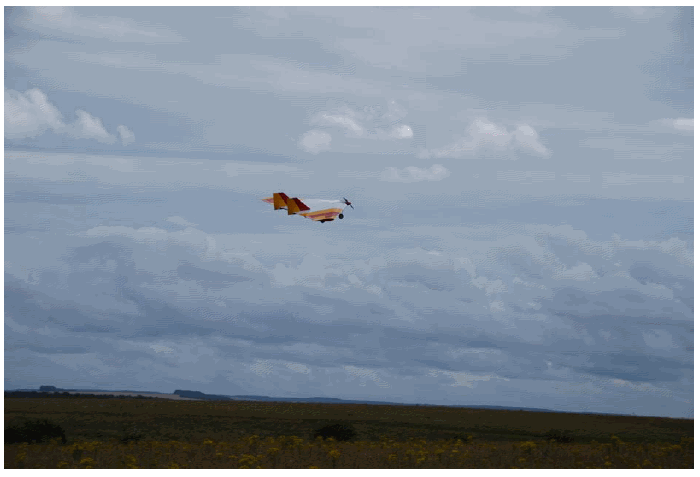BML preperations for competition
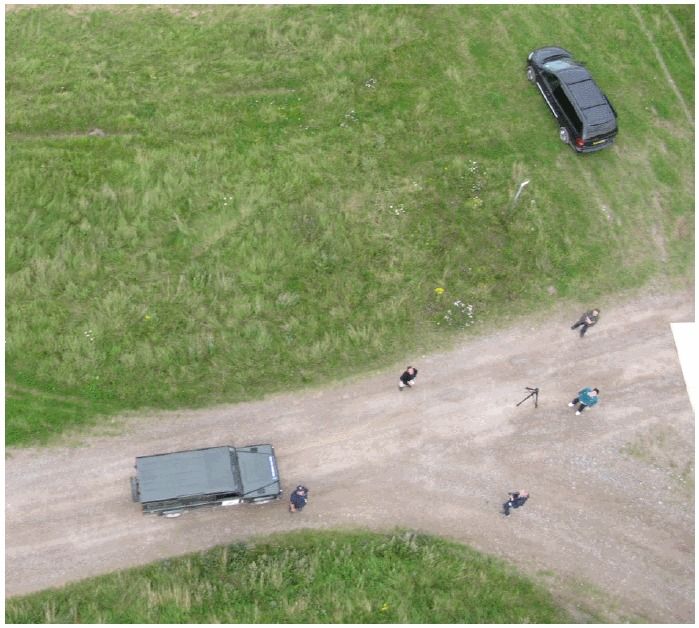
Delta Wing aircraft was used to test camera quality and vibration levels. A Canon G9 camera was used.
Our broad objectives
Our aim is to keep our system as simple, as cost effective and as lightweight as possible. We also aim to enable the widest use of the proposed technology. The sensor system will be programmed to fly autonomously and gather the required imaging data, with the data being relayed back to the laptop via a standard WLAN connection operating at 2.4 GHz. We plan to use ultrasonic ranging systems to enable the sensor system to avoid colliding with an obstacle. Maximum use will be made of Commercial-Off-The-Shelf components and systems.
The excellent thing for us is that we can apply technologies we have developed for use in oil and gas pipeline monitoring. Consequently, we are likely to enhance our detection technology in the light of developments we make in our pipeline monitoring activities, in areas such as the use of scanning LIDAR to detect wires and the use of five CCD imagers on the air vehicle to build up a 3D, time dependent, image of the area under the aircraft. We plan to develop a solution which is:
- Realistic: use human threat recognition aided by computer detection of changes
- Cost effective: use commercial parts where possible, use as few different types of UAV as is practical
- Lightweight (see graph below showing the increasing load of the infantry soldier)
- Robust: the sensor vehicle must be easily transported
- Easy to use
- Scalable, in that every soldier on patrol could carry a sensor vehicle
- Can be relatively quickly introduced to real world use
Flight Trials
Raptor50 flight trials with high performance, 2 stroke, OS Engines Hyper 50 engine. Tests showed that we needed to reduce noise levels, reduce smoke given off and increase the amount of fuel carried. Flight trials demonstrated the Thunder Tiger Raptor 50 to be very stable in flight.
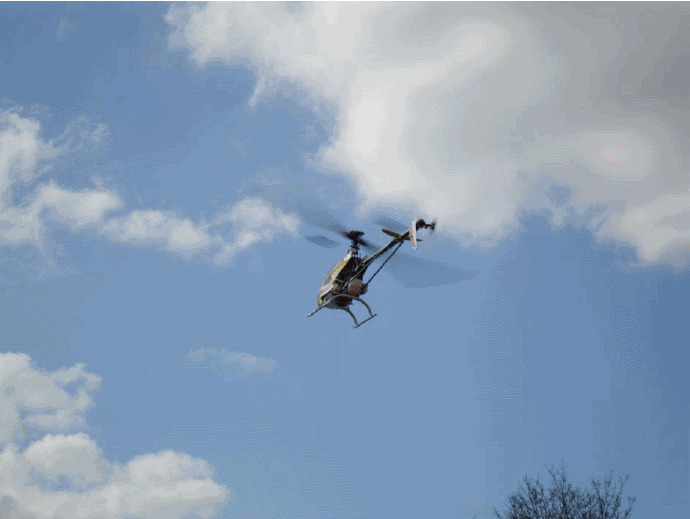
Flying the T-REX ALIGN 600 electric helicopter below. This helicopter is realy easy to fly, but far more noisy than we expected! The high pitch noise seems to us to be more than just helicopter blade noise: possibly a high pitch contribution from the brushless electric motor.
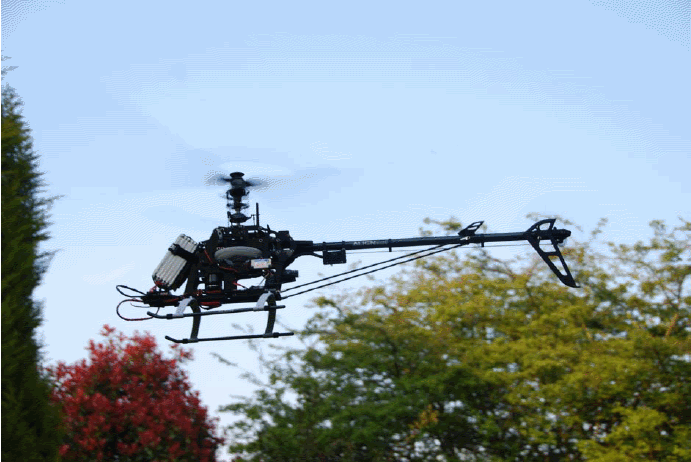
Simple rig used to check on the ability of the image stabilised SONY W200 camera to ciope with the vibration level on an Align T-REX 600 electric helicopter
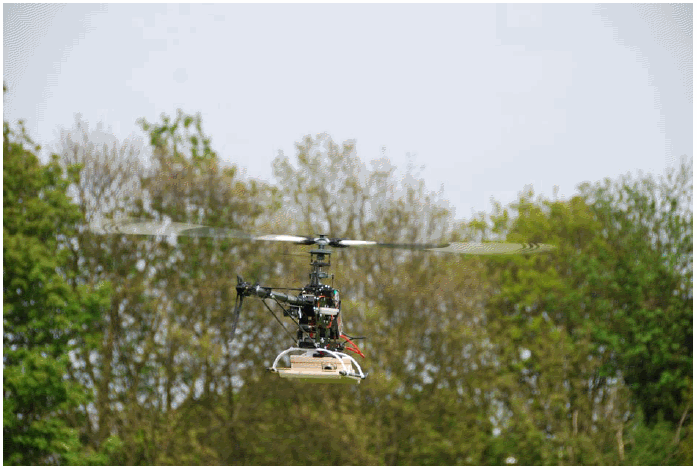
Trials using the Raptor 50. The camera is far to close to the hot, high vibration-level two stroke engine. After a short flight, the camera was scratched after being in contact with the two stroke engine. A far better Camera Platform is required.
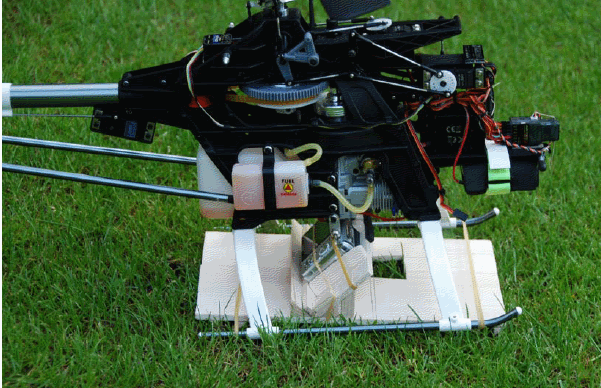
The soluction can be seen below. There is a reduced noise level from the helicopter. We were more easliy able to reduce the Visual Signature of the helicopter
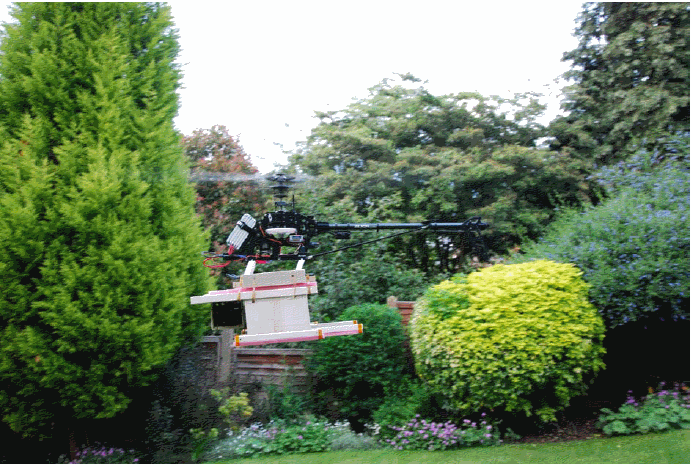
Flight trials for the CropCam aircraft prooved successfull. This allowed us to take high quality images from high in the sky.
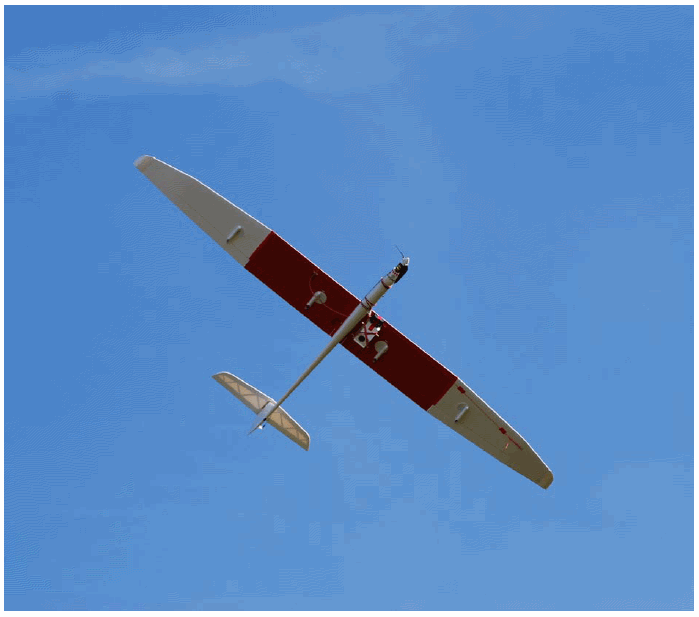
Deltawing aircraft testing in windy conditions
